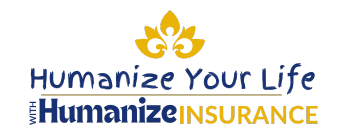Health insurance is more than a convenience; it’s a lifeline, especially in the tumultuous times following an unexpected job loss. While COBRA offers a safety net, it’s not the only option out there. Let’s delve into the myriad of alternatives that can provide you with the coverage you need without breaking the bank.
What are the alternatives to COBRA?

Marketplace Health Insurance
When one door closes, another opens with Marketplace health insurance plans. Tailored to those who find themselves without a job, these plans are based on household income and can be surprisingly affordable. Did you know that nearly 85% of individuals who opt for Marketplace plans qualify for subsidies? That’s a statistic worth considering when you’re looking for a cost-effective solution.
Private Health Insurance Options
Don’t fancy the Marketplace? Private health insurance plans are the bespoke suits of healthcare—designed to fit your specific needs. With a variety of providers offering competitive plans, you’re bound to find one that aligns with your healthcare requirements and budget.
Association Health Plans
Joining forces can lead to better coverage. Association health plans allow you to band together with others to enjoy group rates that are often more favorable than individual plans. It’s a powerful example of strength in numbers.
Short-Term Health Insurance
In a pinch between jobs? Short-term health insurance can be your stopgap, providing temporary coverage to keep you protected. Just remember, these plans are not meant to be long-term solutions, but they can offer peace of mind when you need it most.
Alternative Health Insurance Programs
Sometimes, you need to think outside the box. Alternative health insurance programs and medical sharing plans can be unconventional, yet effective ways to manage your healthcare expenses.
How can I get health insurance after job loss?

Enrollment in the Health Insurance Marketplace
Navigating the Health Insurance Marketplace can be daunting, but it’s a valuable resource for finding coverage. Special enrollment periods are available for life events like job loss, so you won’t have to wait for open enrollment.
Qualifying for Medicaid
Medicaid isn’t just for the chronically unemployed. In fact, a job loss can put you in the eligibility bracket for this state and federally funded program. It’s a safety net worth exploring.
Utilizing Tax Credits for Health Insurance
The government can help you shoulder the burden of health insurance costs. Premium tax credits are designed to make insurance obtained through the Marketplace more affordable for those who qualify.
Exploring Traditional Health Insurance Options
Don’t overlook the traditional routes. Employer-sponsored plans or private insurers might still be within reach, especially if you have a working spouse or can find employment that offers health benefits.
Seeking Individual Health Insurance Plans
Taking matters into your own hands can sometimes be the best course of action. Individual health plans from insurers ensure you’re covered, regardless of employment status.
What are the coverage options after job-based insurance?

Employer and Marketplace Health Insurance Plans
Post-job insurance doesn’t have to be a downgrade. Employer-sponsored plans and Marketplace options can offer comprehensive coverage that meets, if not exceeds, what you had before.
Group Health Plan Alternatives
Group health plans aren’t the only game in town. Alternatives can offer similar benefits, sometimes at a better rate, giving you the coverage you need without the association with a specific employer.
Individual Health Insurance Coverage
Going solo with your health insurance can give you the freedom to choose the plan that’s right for you. Individual coverage puts you in the driver’s seat of your healthcare journey.
Options for Affordable Care Act Coverage
The Affordable Care Act (ACA) has reshaped the health insurance landscape, providing options that are both affordable and comprehensive. It’s a cornerstone of modern healthcare that shouldn’t be overlooked.
Private Health Insurance Alternatives
Private health insurance alternatives can be tailored to your unique circumstances, offering a level of customization that’s hard to beat.
How to navigate the health insurance marketplace after job loss?

Understanding Enrollment Periods and Qualifications
Knowledge is power, especially when it comes to enrollment periods and qualifications. Arm yourself with information to make the most of the Marketplace.
Applying for Premium Tax Credits
Premium tax credits aren’t just for the few; they’re a tool that can make health insurance attainable for many. Understanding how to apply can significantly reduce your monthly premiums.
Accessing Healthcare.gov and State Exchanges
Healthcare.gov and state exchanges are your portals to health insurance options. They’re user-friendly and designed to help you find the right plan with ease.
Exploring Medicaid Eligibility
Medicaid eligibility might be more accessible than you think, especially after a job loss. It’s a path worth exploring for comprehensive coverage at little to no cost.
Reviewing Health Services Offered
Not all health plans are created equal. Reviewing the services offered by different plans can ensure you get the coverage you need for the medical services that matter most to you.
What are the available tax credit options after job loss?

Eligibility for Premium Tax Credits
Determining your eligibility for premium tax credits can be the difference between affordable coverage and financial strain. It’s a critical step in managing your health insurance costs post-job loss.
Understanding Household Income Qualifications
Your household income plays a pivotal role in what kind of tax credits you can receive. Understanding these qualifications can open doors to savings you might not have known existed.
Accessing Affordable Care Act Tax Credit Programs
The Affordable Care Act’s tax credit programs are a lifeline for many, making health insurance a reality rather than a luxury. Knowing how to access these programs is essential.
Assistance with Health Insurance Premiums
Assistance with health insurance premiums is available for those who need it. Tax credit programs can provide the help required to keep you covered during tough times.
Utilizing Tax Credits for Health Care Costs
Tax credits can do more than lower your premiums; they can also help with other healthcare costs. Utilizing these credits can ease the burden of medical expenses.
Citations:
- “Health Insurance Coverage Eight Years after the ACA.” Benjamin D. Sommers, Atul A. Gawande, and Katherine Baicker. New England Journal of Medicine, 2019.
- “The Effects of Premium Tax Credits on Health Insurance Enrollment.” Linda J. Blumberg, Matthew Buettgens, and John Holahan. Urban Institute, 2020.
- “Association Health Plans: What Are the Issues?” Karen Pollitz, Matthew Rae, and Gary Claxton. Kaiser Family Foundation, 2018.
- “Short-Term Health Insurance: A Short-Term Solution.” Emily Curran and Dania Palanker. Center on Health Insurance Reforms (CHIR), Georgetown University Health Policy Institute, 2019.
- “Medicaid Eligibility, Enrollment Simplification, and Coordination under the Affordable Care Act: A Summary of CMS’s March 23, 2012 Final Rule.” Martha Heberlein, Tricia Brooks, Jocelyn Guyer, Samantha Artiga, and Jessica Stephens. Kaiser Family Foundation, 2012.
###
Q: What options do I have for health coverage after losing my job-based insurance?
A: After losing job-based health insurance, you may qualify for a marketplace plan through the Health Insurance Marketplace, or COBRA coverage. Additionally, you can explore options such as purchasing a marketplace plan, enrolling in a small employer’s health plan, or joining a health care sharing ministry.
Q: Can I purchase a marketplace plan after losing my job-based coverage?
A: Yes, if you lose job-based health insurance, you may qualify to buy a marketplace plan through the Health Insurance Marketplace during the Special Enrollment Period.
Q: What is a Health Savings Account (HSA) and how can it help me with health coverage?
A: A Health Savings Account (HSA) is a tax-advantaged savings account that can be used to pay for qualified medical expenses. It can be paired with a high-deductible health insurance policy to provide coverage for medical expenses.
Q: Are there alternatives to traditional health insurance options?
A: Yes, alternatives to traditional health insurance include joining a health care sharing ministry, enrolling in a short-term health insurance plan, or exploring options through a group health insurance plan offered by a small employer.
Q: What are some proactive solutions for maintaining health coverage after unexpected job loss?
A: Proactive solutions include exploring marketplace coverage, enrolling in a family health insurance plan, considering a health care sharing ministry, or opening a Health Savings Account (HSA) to help manage healthcare expenses.
Q: What should I consider when evaluating health insurance companies for alternative coverage?
A: When evaluating health insurance companies for alternative coverage, consider factors such as plan options, network of providers, premium costs, coverage for essential health benefits, and customer service reputation.
Q: Can small businesses offer health insurance options that I can consider after losing job-based coverage?
A: Yes, small businesses may provide group health insurance plans that you can consider after losing job-based health coverage.
Q: How can I determine if I qualify for a premium tax credit when selecting a marketplace plan?
A: You may qualify for a premium tax credit when selecting a marketplace plan based on your income and household size. The credit can help lower the cost of your monthly health insurance premium.
Q: What are some key factors to consider when choosing an alternative health coverage solution?
A: Key factors to consider when choosing an alternative health coverage solution include coverage options for primary care and essential health benefits, affordability, network of providers, prescription drug coverage, and out-of-pocket costs.
Q: How can I ensure that my family has adequate health coverage after losing job-based insurance?
A: You can ensure that your family has adequate health coverage after losing job-based insurance by exploring family health insurance plans, considering marketplace coverage, or investigating options through small employers or health care sharing ministries.
###

